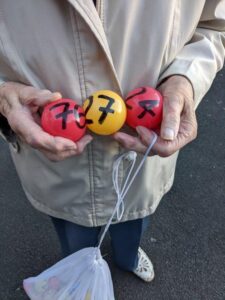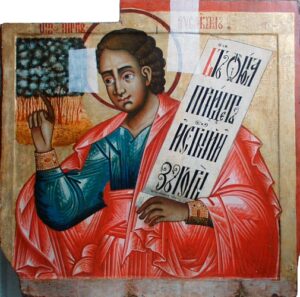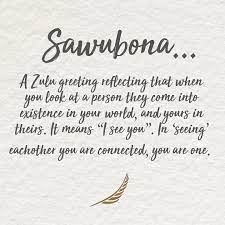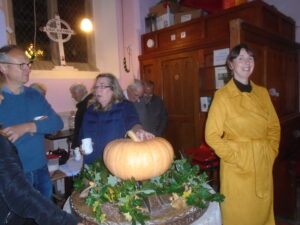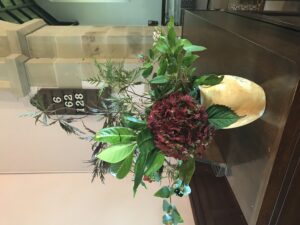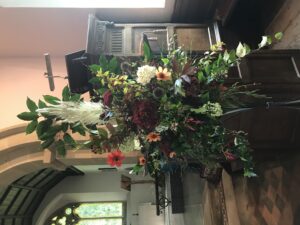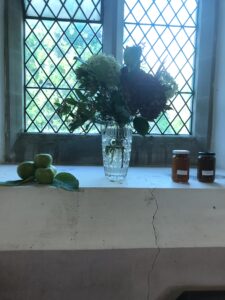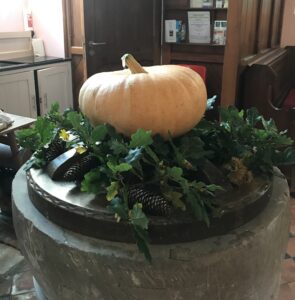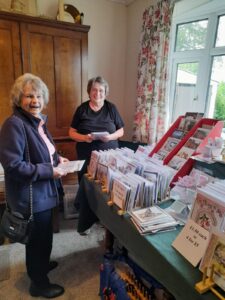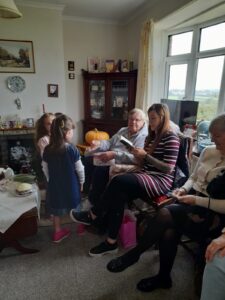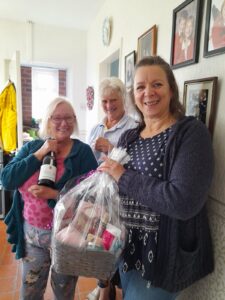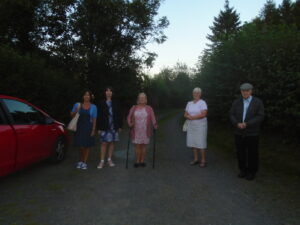
Congregation for Forest Church in September
Based for the moment at Billingsley, “Forest Church” is something we have been experimenting with over the last six or so months. It really is not well-named; it is actually a way of responding to God as experienced in nature by an open-air service, though it is open to everyone regardless of their faith or sense of spirituality.
In this benefice and deanery, we are all very aware of the natural world. During lock-down, the fact that nobody lives more than a five-minute walk from open-countryside, and that almost everyone can see countryside from their home, was a great help to a lot of people. We are also very aware of how dependent we are on nature; our climate is fragile, we live in ways that are unsustainable because of the effect that they have on the planet. Perhaps it is not surprising that many people find something spiritual in being outside, be it in countryside or simply in a garden. Interestingly, this is felt not just by committed Christians; many who would not consider themselves as “religious” still feel a connection with something beyond themselves by being outside and having time to think and be still. Forest Church is an attempt to bring groups of people together to do just that.
At Billingsley we have tried two approaches. We have regular walks, of around three to six miles. Mostly these are not remotely religious in nature; we simply walk, talk (about the trivial and the profound) and look. But these do provide an opportunity for people to feed their spiritual sides, by just being outside and active. We have experimented with a short period of walking in silence, to encourage this. These will remain primarily social events, to walk with friends, but I think we all feel some sense of being built up spiritually by them.
The other approach is to hold short services of readings, music and meditations. So far we have based these at Billingsley churchyard (with the option of sitting in the porch if it rains!), sometimes with a short walk to an orchard or farm. We have looked at the natural history of the church and churchyard; flowers and birds, the stones of the building formed 200 million years ago. We have looked at the wild and the farmed harvests; the crops, wild fruits and livestock. In the presence of the grain driers at Church Farm, we have broken and eaten bread. We usually finish in church with refreshments.
The majority of people who have attended our events have been church-goers, but we do also have people who would not call themselves Christians, who are perhaps uncomfortable with the very idea of God, at least as (s)he is conventionally pictured. In fact, a non-church going person who attended a Forest Church commented “this is one of the best experiences of my life”. I try and pitch the events that I lead so all can respond. Of the people who have helped and encouraged me (none of this is my own idea!), one is Christian, the other does not identify herself as such. This is typical of people who take part in Forest Churches, wherever they are held. We do not ask questions about personal belief; all are welcome.Our next service is at Billingsley on Sunday 28th November at 10.30; please come along if you are interested!
